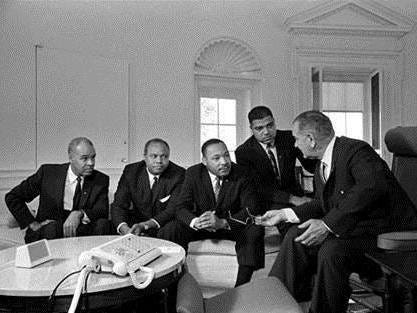Why Did Liberals Ditch the Fight Against Poverty?
Vague commitments to equity can’t replace the moral and political case for eradicating poverty
As readers probably know by now, The Liberal Patriot finds many aspects of modern politics vexing. One of the more confounding developments for those of us who believe in freedom for all people—both negative freedom that protects people’s rights and positive freedom that comes with the economic security necessary to live a good life—is the shift from the unifying fight against poverty to a divisive fight against vague forces of structural oppression fashionable today.
For liberals, freedom is a pretty hollow concept if you’re working multiple low-wage jobs and still can’t afford to keep a roof over your head, pay for health care, feed your kids, or save a modicum of your wages for a rainy day or basic enjoyment. Yet somehow the generational fight to reduce or eliminate poverty—particularly childhood poverty—has vanished as a stated political goal for the party of American liberalism.
With the exception of Sen. Cory Booker, who had several good ideas for reducing child poverty like his “baby bonds” proposal, few if any of the leading Democratic candidates for President in 2020 ran on fighting poverty. Sen. Elizabeth Warren had 81 separate plans in her campaign yet not one of them lists poverty reduction as a specific goal. Class warrior Sen. Bernie Sanders and lifelong Catholic Joe Biden both failed to mention poverty in any of their specific campaign plan titles. Even President Biden’s emotional inaugural address calling for national unity in the face of multiple social and economic crises doesn’t mention the word “poverty”.
Why?
Obviously, Democrats still care about issues of poverty and support a range of smart policies that would help low-income people across the country. But their reference point and analytical lens has shifted entirely toward confusing ideas about equity and justice in recent years—ideas that are grounded in combatting various institutional oppressions based on race, gender, ethnicity, and sexual identity rather than carrying on the historic effort to combine civil rights and economic justice into a multiracial movement against poverty.
The moral and political case for doing this is thin, however. If you can’t build and sustain political majorities at the state and federal levels to support redistributive anti-poverty policies, then all the abstract talk about equity is meaningless. Poor people won’t get help without the votes. In order to do this, liberals need to continually amass coalitions of people across racial and ideological lines to back income supports, housing policies, affordable health care, educational equality measures, and legal protections and collective bargaining arrangements for low-income people of all backgrounds.
Building and sustaining these coalitions to support anti-poverty work has always been difficult, especially in the face of those who don’t think the government should do these things at all or only in limited situations. Given these political obstacles, the idea of turning larger economic problems associated with low-wage jobs and poverty into racial, gender, or other “systemic” issues makes little sense—liberals need to unite people around common economic challenges and opportunities, not divide them by sectarian categories. If you want racial justice or environmental justice or any of the other laudable ideals of the contemporary left, you first need to make sure people aren’t poor and you can’t do that unless low-income people of all races are the focus of mass political action over time.
Fortunately, there are several good ideas bubbling up to combat child poverty, including those of the family-oriented contingent of the conservative movement, and more recently, the excellent “Family Security Act” proposal of Sen. Mitt Romney to provide a child allowance for all families. Obviously, there will be disagreements between the parties on the structure of these ideas and debates about Romney’s specific ideas for eliminating other anti-poverty programs as part of his proposal. But liberals should work with conservatives on this idea, and others like Sen. Booker’s baby bonds idea, to find a way to solidify the financial position of low-income families and strengthen future opportunities for all children.
President Biden admirably wants to forge national unity. One obvious path for doing this would be to bring Americans of all stripes together to support a common agenda for reducing and eliminating poverty. Liberals and conservatives certainly agree that no child in America should go to bed hungry or scared at night and that no person who works full time should have to live in poverty.
Let’s make this vision a reality.



